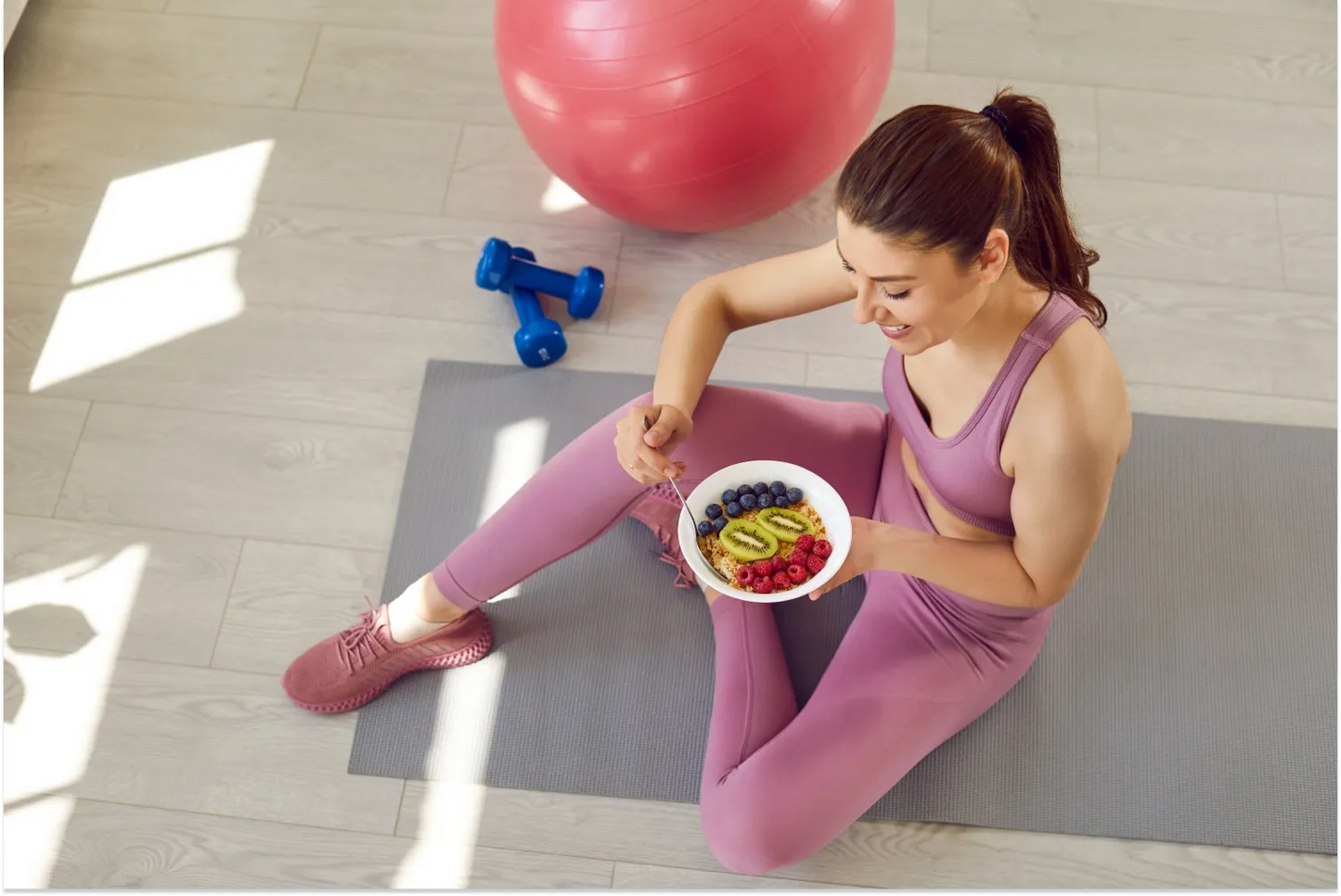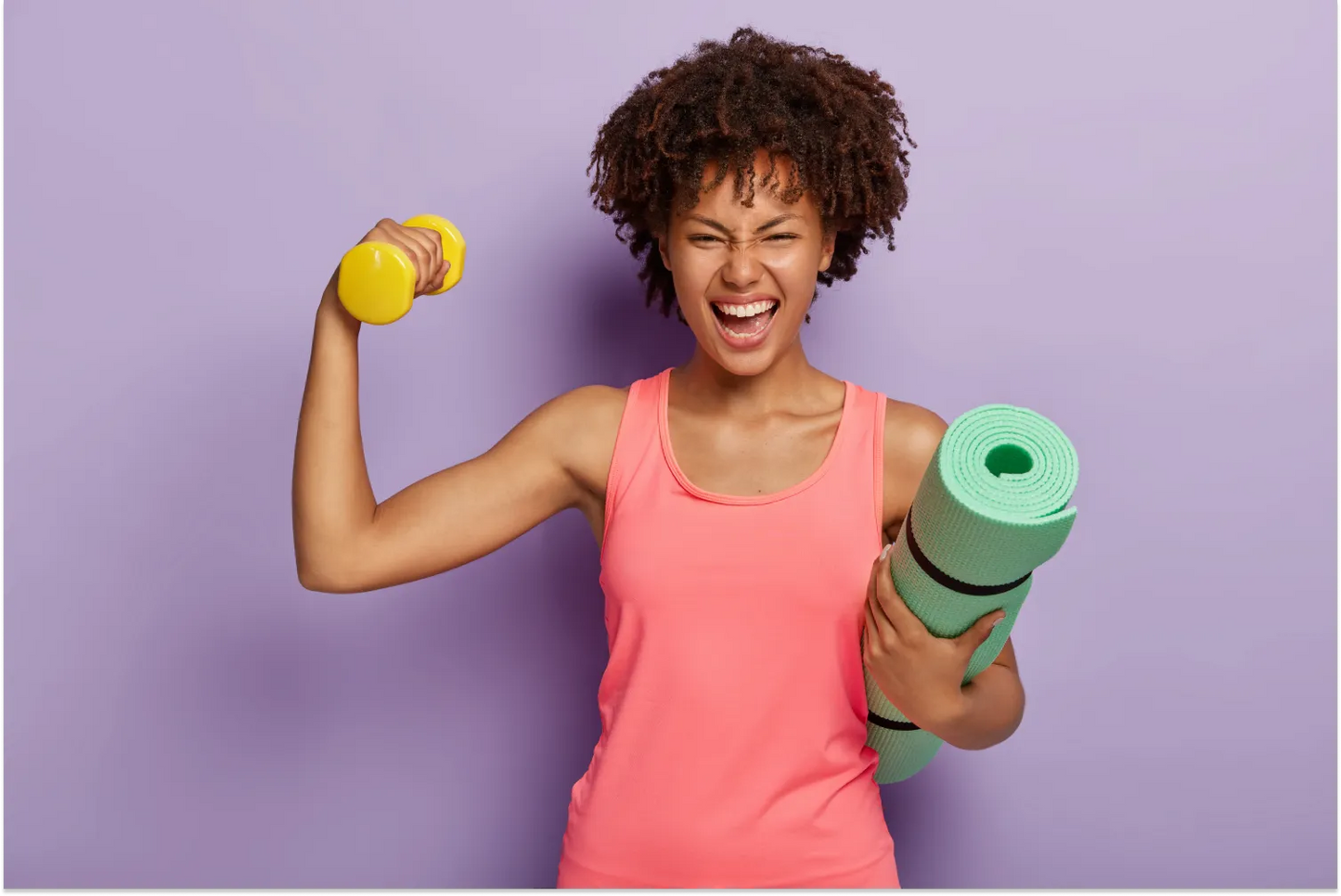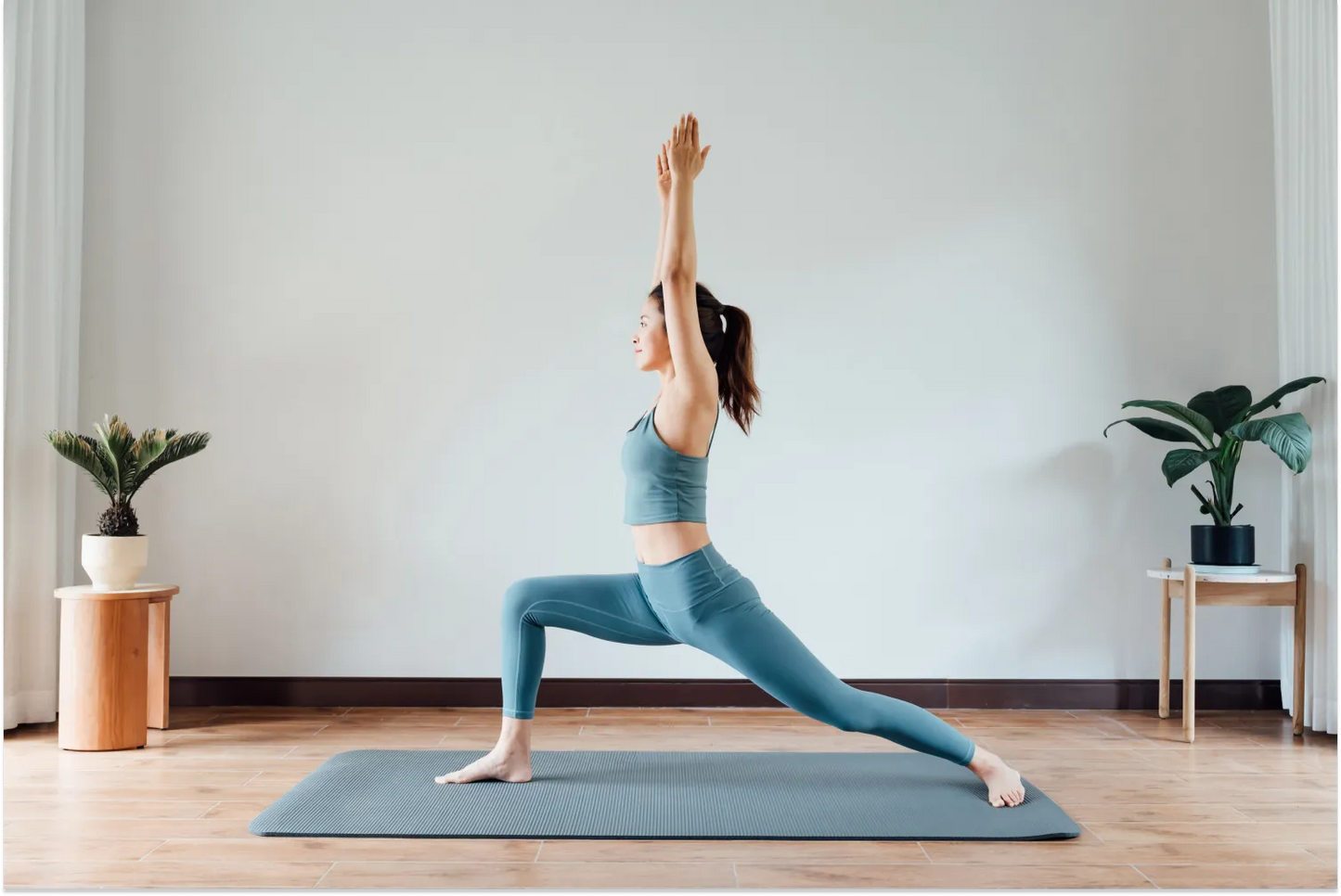
How Long Should You Wait To Exercise After Eating?
We all recognize the importance of fueling our bodies properly for workouts, but many of us forget about the timing. For instance, did you know that timing your meals in relation to your workouts could enhance your performance and recovery?
The general recommendation is to wait at least two hours after a big meal before exercising. That’s enough to give your body adequate time to digest and absorb the nutrients. For smaller meals or snacks, you can lessen the wait time to about 30 to 60 minutes.
While these are general guidelines, it's essential to note that everyone's body is unique, and what works for one person may not work the same for another. Listening and tuning in to your body can help you optimize your workouts and get the most out of them.
Join us as we dive into the details to help you learn what and when you should eat to support your workouts.
What Should You Eat Before a Workout?
To ensure you have enough energy to power through your workout and to aid in the recovery process, it's crucial to understand what to eat before your fitness session. Knowing what foods provide the necessary fuel — and when to eat them — can drastically boost your energy, stamina, and gym performance.
Let's break down the key macronutrients to incorporate into your pre-workout meal.
Complex Carbohydrates: The Energy Boosters
Carbohydrates are your body's main source of energy, as they play a key role in maintaining blood sugar levels during exercise.
Complex carbohydrates, in particular, are broken down slowly by your body, supplying steady and long-lasting energy during your workout. Examples of wholesome complex carbs include whole grains, vegetables, and fruits.
Simple carbohydrates, on the other hand, are more easily digested by your body. As a result, you’ll experience a faster boost of energy than eating complex carbohydrates. However, simple carbs can also result in an “energy crash” and leave you feeling sluggish mid-workout.
Proteins: The Muscle Repair and Growth Agents
Proteins are essential for muscle growth, as well as the maintenance and repair of your tissues. To increase your protein intake, you can opt for protein shakes and supplements or simply try to include lean sources of protein, such as Greek yogurt, in your diet.
The amount of protein that you need will largely depend on the type of exercise you’re performing. For instance, you’ll need more protein for muscle-intensive workouts involving weight lifting than you would for a cardio-centered routine.
Healthy Fats: The Endurance Providers
Healthy fats can also offer you prolonged energy. You can obtain good and healthy fats from sources such as avocados, nuts, and seeds.
It’s important to keep in mind that the length of time required to digest fats is much higher. That means that high-fat meals are better suited for lower-intensity or longer-duration workouts.
Pre-Workout Meal Ideas
Aiming for a good balance of these macronutrients in your pre-workout meals can give you the strength and endurance required for any workout mode or intensity.
Here are a couple of proven winners:
For a quick yet substantial option, consider a smoothie made from a scoop of high-quality protein powder, a handful of antioxidant-rich berries, some spinach, and a splash of calcium-packed almond milk.
Another quick snack option is a high-fiber granola bar, providing the right mix of complex carbohydrates to energize your session. For a protein and healthy fat boost, spread some peanut butter or your preferred nut butter on a slice of whole-grain toast.
If you have a little more time for preparation, a slice of whole-grain toast topped with healthy, fiber-rich hummus and veggies can provide a good blend of complex carbohydrates and proteins.
How Long Should You Wait To Work Out After Eating?
The timing of your workout after a meal is an essential factor that can influence the effectiveness of your fitness routine. The time you need to wait before you start exercising will depend largely on your individual digestive system and the size and composition of the meal.
Here's what to consider when planning your workout schedule in relation to your meals.
Understand Your Digestion
Each person’s digestive system is unique, and this includes how quickly or slowly your body digests food. Some people might find that they can work out shortly after a small meal without any discomfort, while others might need more time to comfortably commence their exercise regimen.
It's crucial to understand your body and its timing to avoid any potential discomfort or gastrointestinal issues during a workout.
Consider Meal Size
Naturally, larger meals require a higher amount of time for your body to digest properly. If you've consumed a full, balanced meal consisting of a protein-laden entrée like chicken or fish, a side of nutritious vegetables, and a complex carbohydrate addition such as brown rice or sweet potato, it's wise to wait about two to three hours before embarking on heavy physical exertion.
Balance Light Snacks and Exercise
On the other hand, if you've only had a small snack prior to your workout — say a potassium-packed banana, whole grain bagel, or a handful of protein-rich almonds — there is much less food to digest. This means that getting started with your workout won't require as long a wait — about 30 minutes should suffice.
If you’re unsure about your diet or your exercise routine, then you could always consult with a registered dietitian or personal trainer to help you.
What Should You Eat After a Workout?
Just as you fuel your body before hitting the gym, it's equally important to replenish it after your workout.
High-intensity interval training (HIIT) workouts and strength training typically result in muscle damage and breakdown. So, refueling with high-quality proteins is essential.
After a strenuous workout, your energy reserves in the form of glycogen stores are generally depleted. To restore these useful reserves, include ample carbohydrates in your post-workout meals. Healthy fats tend to get less attention in post-workout nutrition, but they're also essential for hormonal balance and soothing tension, both crucial for recovery.
Post-Workout Meal Ideas
Balancing these macronutrients in your post-workout meal can encourage quicker recovery and maximize your workout benefits. Here are some ideas that tick all the nutritional boxes.
For a full, rounded meal, try a balanced plate consisting of protein-rich grilled salmon, fiber-filled leafy greens, and a serving of cooked quinoa, an excellent source of both carbohydrates and proteins.
If you fancy a quicker bite, Greek yogurt topped with colorful, antioxidant-rich berries and a sprinkling of omega-3 packed chia seeds can offer a fantastic blend of proteins, carbohydrates, and healthy fats.
Or, you could shake up a quick protein shake, ideally combining a clean, high-quality protein powder with a choice of healthy carbohydrates like a banana or berries.
Are There Side Effects of Working Out on a Full or Empty Stomach?
There's plenty of debate about whether it's better to pump iron on an empty stomach or wait until you've eaten. Here's what you need to know for optimal health and performance:
Exercise on an Empty Stomach
Some may believe there could be a benefit to exercising before breakfast, thinking that the body will burn stored fat for fuel. While that might be the case, there’s a little more to it than that.
Running on empty can lead to muscle loss, as the body may resort to breaking down proteins in a bid to generate much-needed energy when there are no carbohydrates to spare. This could compromise your muscle mass and strength over time.
Additionally, exercising without eating could leave you feeling lethargic, dizzy, or lightheaded — hardly the condition anyone wants to be in during a workout.
Exercise on a Full Stomach
On the other hand, jumping straight into a workout after a large meal might cause symptoms like an upset stomach, bloating, heartburn, and acid reflux.
Keep in mind that the intensive act of digestion requires a significant amount of blood flow to your stomach and small intestine. When you exercise, that blood is being diverted to your working muscles.
The counterintuitive clash can lead to indigestion, discomfort, or sluggishness that can potentially derail your performance.
How Can You Prevent Cramping While Exercising?
Nothing detracts from the joy of a satisfying workout quite like the abrupt onset of a painful muscle cramp! But there are several strategies that might help you stave off this unwelcome intruder.
Hydrate
Maintaining optimal hydration is crucial to preserving electrolyte balance and thereby helps prevent muscle cramps. Make sure you're sipping fluids before, during, and after exercise.
Apart from water, sipping on electrolyte-rich sports drinks or bone broth can also help in replenishing lost salts during an intense sweat session
Eat the Right Foods
Eating a balanced diet is non-negotiable. It’s essential that you follow a well-balanced diet that features an adequate amount of macronutrients like protein, fat, and carbohydrates.
Furthermore, you should opt for foods rich in key minerals like potassium, calcium, and magnesium, as they play a vital role in supporting healthy muscle function.
Stretch and Warm Up
Don't underestimate the importance of a good warm-up and stretching routine before you begin exercising. These practices prepare your muscles for the bout of physical activity and could help lessen the likelihood of cramping.
While we’re on the subject, don’t forget to give your muscles a bit of a cool-down period while wrapping up your workout.
The Bottom Line
Remember that there’s no definitive one-size-fits-all answer to nutrition and exercise timing. Learning about food as fuel is an eye-opening journey that can improve your overall wellness and performance. And remember, nutrition and exercise are just parts of the wellness puzzle.
Additional lifestyle factors like sleep and stress management also play a significant role in your holistic health journey. Always keep in mind that your wellness journey is an ongoing process, and Dr. Kellyann is here to support you every step of the way.
Sources:
Protein | The Nutrition Source | Harvard T.H. Chan School of Public Health
Your Digestive System & How it Works | NIDDK
Know the Facts About Fats | Harvard Health
How Long Does It Take to Digest Food | Cleveland Clinic
Fundamentals of Glycogen Metabolism for Coaches and Athletes | PMC







